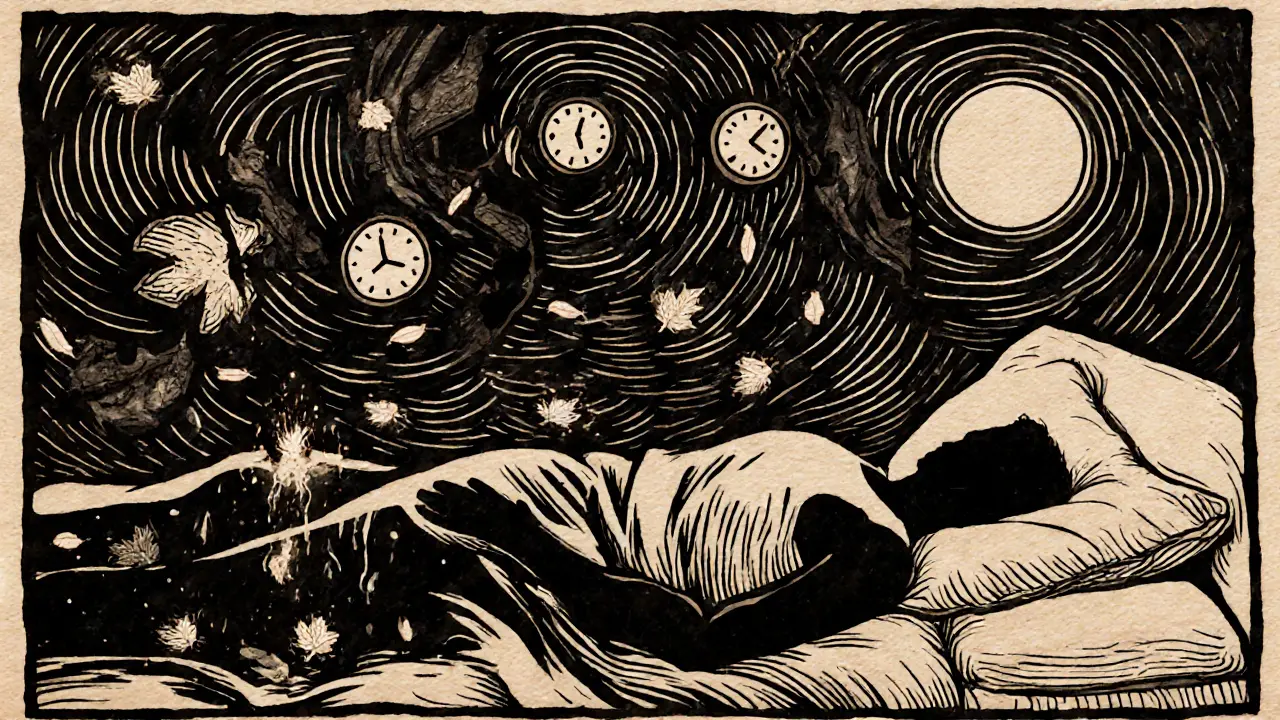Spánek a úzkost: Jak porušený spánek zhoršuje úzkost a co s tím dělat
When you can’t sleep because your mind won’t shut off, you’re not just tired—you’re stuck in a cycle where spánek a úzkost, navzájem se posilující stavy, které se zhoršují, když se neřeší společně. Also known as nespavost spojená s úzkostí, this pair doesn’t just annoy you—it rewires your brain to stay on high alert, even when your body begs for rest. This isn’t about drinking more tea or counting sheep. It’s about how your nervous system gets stuck in fight-or-flight mode, and how poor sleep makes it harder for your brain to calm down—even when there’s no real danger.
Think about it: when you lie awake at 3 a.m., your thoughts don’t just drift—they spiral. You replay conversations, worry about tomorrow, imagine worst-case scenarios. That’s not normal worrying. That’s your brain in overdrive because it hasn’t had the chance to reset during deep sleep. porucha spánku, kdy se nespí dostatečně nebo kvalitně, často vede k přehnané reaktivitě na stres. Also known as insomnia, it’s not just a symptom of anxiety—it’s fuel for it. Studies show people with chronic insomnia are five times more likely to develop an anxiety disorder. And the reverse is true too: people with anxiety disorders often report trouble falling asleep, staying asleep, or waking up unrefreshed.
That’s why treating just one side—like popping a sleeping pill or trying to relax more—rarely works long-term. You need to break the loop. kognitivně-behaviorální terapie, metoda, která přeprogramuje myšlenky a chování spojené se spánkem a úzkostí. Also known as CBT-I, it’s the most effective treatment for insomnia linked to anxiety, and it works even when meds fail. It doesn’t tell you to stop worrying. It teaches you how to stop reacting to worry the way your brain learned to—by tensing up, racing thoughts, and avoiding sleep out of fear. You’ll learn what your body really needs: consistency, safety, and a quiet mind—not more caffeine or screens before bed.
In the posts below, you’ll find real, practical advice from people who’ve been there. How to spot the difference between normal sleep troubles and something deeper. What actually helps with nighttime anxiety—not just breathing exercises, but structured routines that reset your nervous system. How therapy tackles the physical tension that keeps you awake, even when you think you’re calm. And why sometimes, the best thing you can do is stop trying so hard to sleep.
Spánek je klíčový pro léčbu depresí a úzkosti - ne jen doplněk. Přes 90 % pacientů má s těmito poruchami problémy se spánkem. Zjistěte, jak terapie spánku může změnit váš duševní zdraví.
Pokračovat ve čtení...
